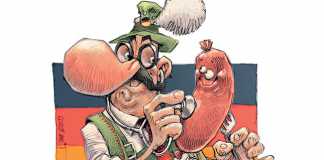There is legislation governing the regulation of genetically modified (GM) crops, but it favours the industry at the expense of consumers and farmers who choose non-or organic options. Regulating the labelling and traceability of GM crops or ingredients would correct this imbalance. No long-term studies have been conducted on the effects of crops on human health and the environment, so where doubt over possible risk persists these crops should be introduced with caution.
This should involve transparent decision-making about permitting crops, and government should have the right to withdraw crops or products wherever an unforeseen risk is established. Unfortunately, SA’s current regulation of GM crops falls short of caution. In fact, the Genetically Modified Organisms (GMO) Amendment Act, which President Thabo Mbeki signed into law in April this year, perpetuates the current weak regulation of GM crops. The act makes it discretionary for the regulator to consider public objections and input when permitting crops. Nor is the regulator obliged to consider environmental impact assessments (EIAs) or potential socioeconomic impacts. The act also doesn’t address the compulsory labelling of GM crops and ingredients.
Pointing fingers
Like the 1997 GMO Act, the Amendment Act fails to adequately specify who will be liable should damage arise from crops, and makes any person who conducts an activity with a GM crop liable, including farmers. Neither does it adequately specify how the costs of any harmful GM crop would be recovered, especially if these only became apparent some years later. The National Biodiversity Act of 2004 does grant the minister of Environmental Affairs and Tourism the power to order an EIA conducted before a GM crop is released into the environment.
In SA, mandatory labelling is only required for food which: Differs significantly in composition, nutritional value or mode of storage, preparation or cooking from that of the corresponding existing foodstuff. Contains a novel gene derived from crustaceans, eggs, fish, groundnuts, milk, molluscs, soya beans, tree nuts or wheat. Contains genetic material derived from a human or an animal, or if animal-derived food contains genetic material derived from a human or from a different taxonomic animal family.
The result is that no food in SA qualifies for mandatory labelling because the transferred genes are derived from microbes, not animals or humans. foods also aren’t known allergens and don’t have enhanced characteristics in terms of composition or nutritional value.
GM labelling: agree to disagree
Government has generally resisted mandatory labelling and segregation because it would be too costly, and because there is a lack of agreement internationally about what level of GMO should be present in food for labelling to be mandatory. But a number of developing countries do have mandatory labelling regulations in place. in countries with mandatory regulations, thresholds for GM content range from 0,9% (EU, Israel, Russia, Switzerland), 1% (Australia/New Zealand, Brazil, China, Saudi Arabia), 3% (South Korea) to 5% (Indonesia, Japan, Taiwan, Thailand). A study headed by Dr Chris Viljoen of the GMO Testing Facility at the Free State University, on the detection of ingredients in maize and soya products, found that 71% of products labelled “non-GM”, “GMO-free” or “organic” contained GM.
The EU has traceability regulations that oblige a company selling a seed, making up the raw material of a food product, to inform the seed buyer that it’s GM. The GM seed company has to provide information that allows the seed to be precisely identified. It must also keep a register of business operators who’ve bought the seed. Farmers growing crops must inform purchasers of their harvest that it’s and keep a register of operators who’ve bought the harvest. Records must be kept for five years after each transaction and made available to public authorities on demand.
Tighten, don’t slacken the noose on GM
Last year, the Department of Trade and Industry tried to tighten the monitoring of GM food, proposing a clause on the labelling of ingredients in food in its draft Consumer Protection Bill. But this clause was dropped from later versions of the bill because of objections from the agriculture department.
However, the SABS has developed identity preservation systems to enable the traceability of both processed and unprocessed agricultural products, sampling and testing protocols and methods for detecting the presence of GMOs or products derived from them. The Portfolio Committee on Environmental Affairs and Tourism should look at what legislation could be introduced to provide stricter control over GM crops. Contact Biowatch SA on (021) 447 5939.













